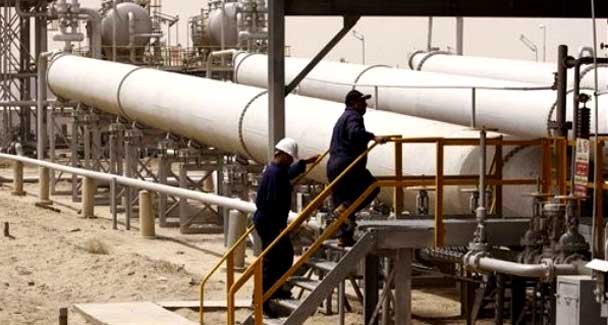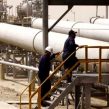
Croatian Government Hesitates on Gas Sector Reform
Publication: Eurasia Daily Monitor Volume: 7 Issue: 201
By:

European Commission President, Jose Manuel Barroso, recently indicated to the visiting Croatian Prime Minister, Jadranka Kosor, that Croatia’s accession talks to join the EU may be completed by the end of 2011, rather than in the spring, as Zagreb had assumed. Barroso and other EU officials acknowledged “important progress” on reforms in Croatia, but made clear that pre-accession reforms have yet to be completed (EurActiv, October 28).
The postponement gives Croatia a chance to adapt its energy market to EU norms, particularly in the gas sector. It also gives the government an opportunity to demonstrate adherence to its contractual commitments, in this case regarding the INA company’s gas business. Under the EU accession timetable, the Croatian government is committed to switching to market pricing of gas by 2012, ending the system of state-regulated prices.
INA, in which Hungarian MOL is the principal shareholder, accounts for the lion’s share of domestic gas extraction in Croatia and gas imports into the country. Under the agreement signed in 2008, the Croatian government was to have taken over INA’s gas-trading division, Prirodni Plin, by December 2009. The government has failed to achieve this on schedule. Instead, it demanded a postponement until December 2010; and according to the latest Croatian press reports, it seems far from clear whether the government is prepared to live up to that commitment at this point (Vjesnik, Poslovni Dnevnik, November 5).
At issue is the socialist legacy of artificially low prices and subsidized consumption in the gas sector. Gas is sold to households at state-regulated prices; and to large state-owned industrial consumers –which represents more than 40 percent of total consumption in Croatia– at a price which is far below the costs of gas procurement. The government has started a process of incremental price increases: but the differential between procurement costs and sale prices is still in the range of 30 percent, according to Croatian press reports (Novi List, November 2; Nova TV, November 3). Thus, Prirodni Plin is forced to incur heavy losses, downloading those losses onto INA and MOL.
The privately-owned MOL took over in 2008 as the principal shareholder and is rapidly modernizing INA’s oil and gas operations. MOL has continued investing in INA’s modernization during the financial-economic crisis. INA is set to show a net profit in 2010 for the first time after many loss-making years. However, the losses inflicted by state regulators on the gas business damage the company’s overall performance and discourage investment in new gas fields, such as those in the Adriatic offshore. Ultimately, MOL covers those losses, in effect subsidizing gas consumption in Croatia (EDM, October 7).
The issue has international implications. Croatia is an expansion target of Russian energy companies in their attempts to reach the Adriatic seaboard. The Croatian market itself is too small to justify such attempts. The main motivation is to cut off Central Europe from oil supplies and planned liquefied natural gas supplies via Adriatic ports. Thus, Gazprom proposes to build a branch of its South Stream project into Croatia, so as to discourage the LNG project. For its part, Lukoil proposes to use the Adria oil pipeline in reverse, for Russian oil exports via the Adriatic Sea, instead of deliveries of Middle Eastern oil via the Adriatic coast into Central Europe (this proposal mirrors Russian reverse-use of Ukraine’s Odessa-Brody pipeline for denying access to Caspian suppliers). Moscow undoubtedly regards MOL’s presence in Croatia through INA as an obstacle to those intentions.
In parallel, MOL itself is being targeted by Surgut Neftegaz, one of Russia’s most opaque energy companies. Having surreptitiously acquired a stake of 21 percent in MOL, Surgut seeks to convert that into board seats and decision-making powers in the Hungarian company. MOL has successfully resisted this attempt thus far. On November 2 in Moscow, Russian Deputy Prime Minister, Igor Sechin, complained to the visiting EU Energy Commissioner, Guenther Oettinger, about this situation, and asked the EU Commission to intercede on Surgut’s behalf (Interfax, November 2).
The Croatian government is now negotiating with INA and MOL about gas prices, as the December 2010 deadline draws near. The government has just announced the appointment of energy expert and businessman, Davor Stern, as Chairman of INA’s supervisory board. The Croatian government retains a 44.8 percent stake in INA and has the right to make that appointment. This particular selection, however, is raising some questions in the Croatian press. Stern has worked for a long time in Russia (mainly for TNK) and with Russian-connected business entities. He was also the CEO of INA during the late 1990’s. Stern has all along supported Russian proposals to reverse-use the Adria oil pipeline and, more recently, to extend the South Stream gas pipeline into Croatia. Following his nomination to INA’s supervisory board chair, Stern claimed for the press, “my relations in Russia are an exclusively private matter” (Jutarnji List, November 3).
The government’s decision on gas pricing, due on December 1, may serve as an indication of whether Croatia intends to reform its gas sector in accordance with EU norms, as a necessary part of the country’s EU accession process. Indirectly, it may also show whether the government has definitively chosen European over Russian interests in its energy policy.




